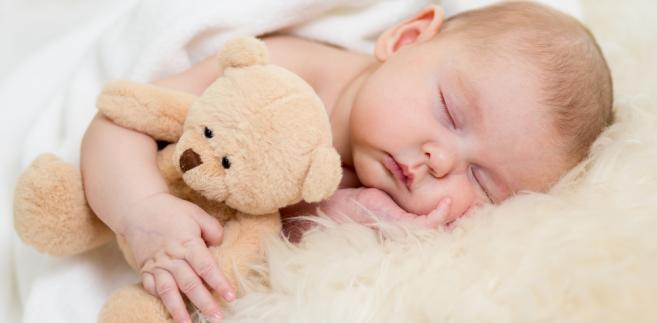 BABY AGE (FROM BIRTH TO COMPLETION 1. AGE)
BABY AGE (FROM BIRTH TO COMPLETION 1. AGE)
The first year of life is a period of amazing growth and development. Concern for the health of the baby at this time begins with a medical examination right after birth, when the pediatrician checks the newborn's heart rate, assesses the efficiency of his breathing and examines reflexes. The debris of the umbilical cord usually falls off overnight 2 weeks. Until then, the umbilical cord stump should be washed and cared for daily with alcohol, to keep it dry.
There are two fontanels on the head of a newborn, that is places, in which the bones of the skull have not yet had time to fuse. The smaller fontanel on the back of the head is usually overgrown after 8 do 12 weeks from birth, while the larger fontanel at the front grows most often in between 6. a 18. month of life. Even though the brain is shielded by tough membranes, called the meninges, the fontanell should be protected against injuries. When the baby cries or screams, fontanel bulge. However, if the fontanelle appears excessively convex or sunken, please contact your doctor.
Usually the first 6 months of baby's nutritional needs are met by breastfeeding or by feeding an infant formula; often the baby is breastfed, and only additionally fed from the bottle. The big advantage of breastfeeding is this, that breast milk helps your baby's immune system fight infections, and in addition, it can protect against subsequent allergies. At the age of approx 6 months old baby may already be prepared for this, to eat solid, soft foods. The ability to drink from a cup usually occurs after a few more months. The pediatrician can advise the mother, when to stop breastfeeding or from a bottle. During the first year of life, most babies triple their birth weight.
It is normal for your baby to regurgitate small amounts of milk or other food soon after eating, because the baby thus gets rid of the air that is swallowed with food. However, if the child vomits frequently, has a fever or diarrhea, and in vomiting, you may notice blood or green bile, contact your pediatrician. In newborns, stools are greenish black or mustard-colored and can be very watery. Breastfed babies tend to have more regular bowel movements than babies, which are formula fed. To prevent diaper rash, nappies should be changed before or after each feed, after defecation and every time, when the baby wakes up from sleep. The diaper must be washed and dried after each change (unless disposable diapers are used). If skin irritation symptoms appear, lubricate it with a protective ointment or cream.
The first sound a baby makes is crying, which usually stops, when the baby is picked up or fed. At the age of 1 or 2 weeks, the baby usually begins to follow other people with his eyes, and in age 4-6 weeks may be smiling at the sight of a different face; all, which looks like a smile, but it shows up earlier, it is probably just a reaction to gas in the intestines. At the age of 12 weeks, the first laugh can be expected. The first teeth appear in most children from the age of 5 do 10 months, and at the time of completion 1. years of age some children may even have 8 teeth.
At the age of approx 3 do 4 months, many babies are already able to raise their heads and shoulders in a prone position. At the age of 6 months, the baby can sit up with someone else's help. Most babies learn to crawl around the age of 8 months, and approx 1. year, the Jew takes his first independent steps. Children at this age may already be able to point and say a few recognizable words, m in. „mama” and “Dad”.
Some children may notice discoloration of the skin on the face or other parts of the body, called birthmarks. Most birthmarks are harmless and will disappear over time, while the color marks are bright- or dark brown, and also purple-
red may be permanent. Because some skin lesions are disfiguring, and in rare cases are associated with cancer risk, Please consult your doctor regarding treatment options.
Children are naturally curious about the world around them and must be protected from accidental injury. Before the baby starts to move independently, certain steps must be taken to protect it from possible dangers in the apartment or house, It is worth e.g.. install security, which will prevent the child from climbing the stairs, opening doors or looking into scarves, as well as security for electrical sockets (if the child gets hurt anyway, Look: Sudden accidents – first aid). Other minor health problems may also occur in babies, m in. anal fissure, krup, diarrhea, constipation, eczema, gastroduodenitis and jaundice